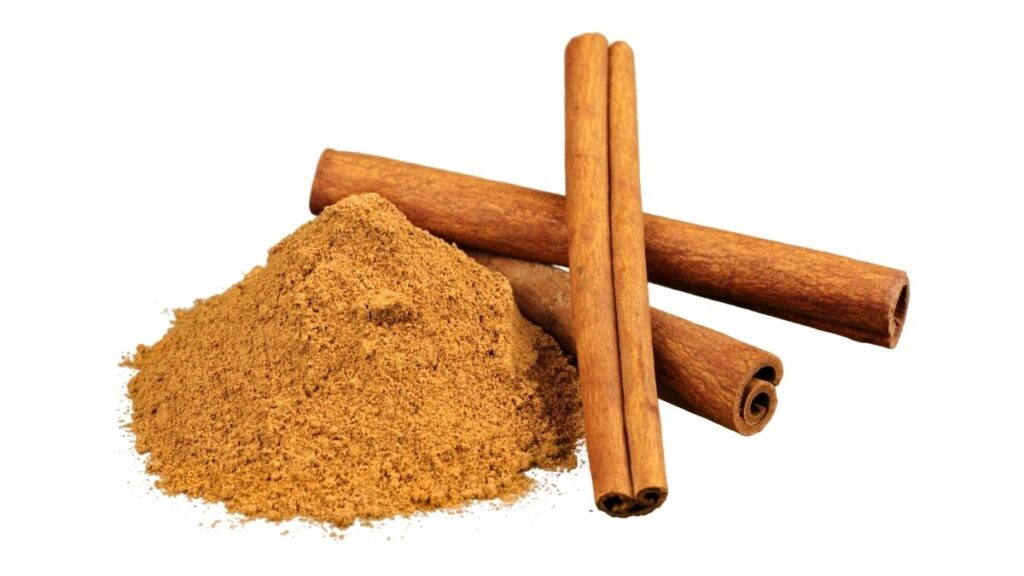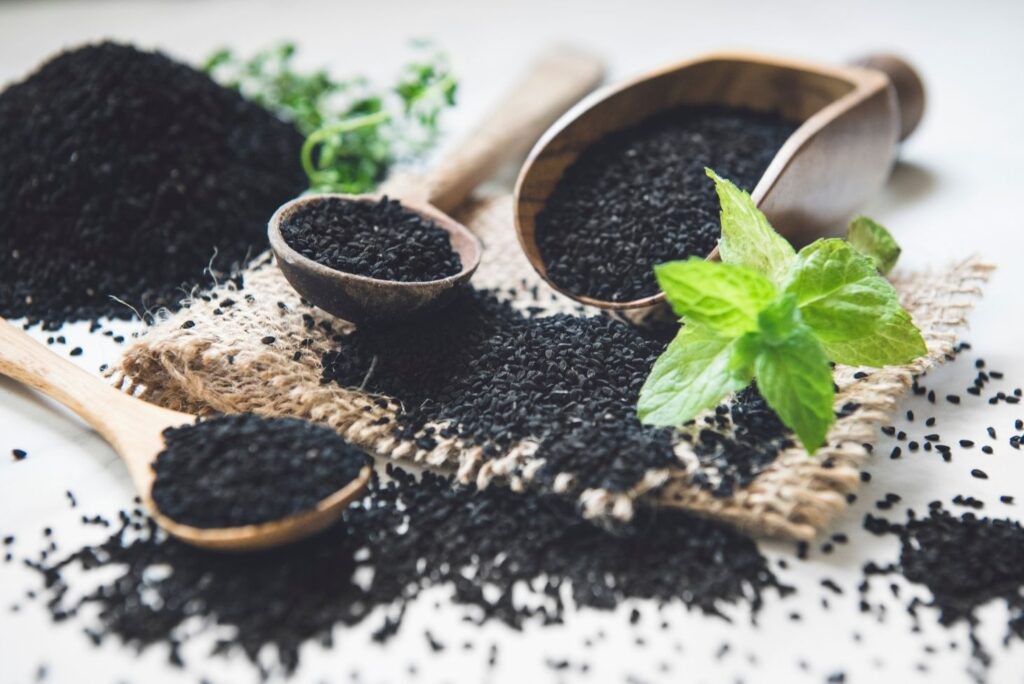If you are looking for simple and effective Arab home remedies, continue reading this article and find out what they are. But first.
Amongst the traditional folk remedies, an important place is occupied by those from the Arab world. Arab home remedies have fascinating stories about the old trade routes on which spices and rare plants were transported, which were used both as foods and medicine. Without further ado, here are the most popular 6 Arab home remedies and their uses.

In This Article You Will Find:
6 Ancient Arab Home Remedies and How to Use Them
1. Anise
In ancient Arabic pharmacology, anise was used to treat colic, abdominal pains, and indigestion. Anise was also a popular home remedy for menstrual pain, cough, and headache. The ancient Arab doctors also believed that aniseed has the power to “cleanse” the urinary tract system and prevent inflammation. Today it is still one of the most frequently used Arab home remedies. Here is how you can use it for the ailments mentioned above.

How to Use Anise as Home Remedy
- Anise tea: Boil 1 teaspoon of anise in a cup of water for 10 minutes, then strain.
- Anise powder: Grind the anise seeds with a coffee grinder until they turn into a fine powder. Add this spice to savory dishes and sweets. It stimulates digestion and refreshes the breath.
2. Cinnamon
Cinnamon has been one of the most popular Arab home remedies in the Arabic peninsula for millennia. Arab doctors used cinnamon remedies to treat colds, coughs, and respiratory infections in particular. It was also used to soothe any stomach ailment, as a digestive pill after heavy meals that cause bloating and discomfort. Cinnamon is also a great home remedy for menstrual cramps, fatigue, and poor memory as well as prevention of cardiovascular disease. More so, cinnamon naturally lowers blood sugar levels.

How to Use Cinnamon as Home Remedy
- Cinnamon & honey: Mix 1 teaspoon of cinnamon powder with 1 teaspoon of honey and put in tea or water. Have this 3 times a day.
- Powder tea: Pour a cup of boiling water over half a teaspoon of ground cinnamon. Infuse for 15 minutes, then strain. Drink 3 cups a day.
- Cinnamon stick tea: Boil a cinnamon stick for 2-3 minutes in a cup of water. Remove the stick and drink 2-3 cups a day.
3. Black Cumin Seeds
Arab tales say that the Prophet Muhammad considered black cumin seeds a safe remedy for any disease except death. Black cumin seeds are traditional Arab home remedies for asthma, cough, stomach pain, colic and abdominal pain, general weakness and fatigue, rheumatism, laryngeal and oral diseases, skin diseases, and cancer. Black cumin seeds are popularly known as black seeds (Nigella sativa). Arab doctors believed black cumin seeds can help women recover after giving birth and regulate menstruation.

These tiny seeds were also a home remedy for stimulating the liver and kidney functions, aiding in digestion, dissolving kidney stones, and also helping memory, concentration, and attention. You can benefit from the healing properties of black cumin seeds by sprinkling them into salads, flatbreads, and pastries. Or you can use them as mentioned below. Needless to say, black seeds are one of the most popular Arab home remedies.
How to Use Black Cumin Seeds as Home Remedy
- Powder: Grind the cumin seeds into a powder and take 3-4 tablespoons a day with water or milk.
- Black cumin seeds with honey: Mix 1 tablespoon of black cumin seeds with 1 teaspoon of honey and have it 3-4 times a day.
- Decoction: Boil 1 tablespoon of black cumin seeds for 2-3 minutes in a cup of water, infuse and then strain.
- Black cumin seeds with milk: Put a cup of milk on the fire, to which you add 2 tablespoons of cumin seeds. When it starts to boil, set it aside. After it has cooled down, strain and drink warm.
4. Cardamom
Cardamom is a praised ingredient in Arabic cuisine, due to its very many uses. Arabs use cardamom to flavor coffee, sweets, beverages, pastries, and some dishes. It is also highly valued as a home remedy for many ailments. In fact, it is one of the most popular ancient Arab home remedies still used today.
Cardamom stimulates digestion, and cures bloating and loss of appetite. In addition, cardamom is used as a home remedy for colds, hoarseness, asthma, and obesity, it dissolves kidney stones and gallstones. This simple seed is a natural disinfectant and detoxifier as well, which makes it one of the top Arab home remedies.

How to Use Cardamom as Home Remedy
- Powder: Grind cardamom seeds into a powder, and add it to coffee or tea.
- Powder & honey: Mix 1/4 teaspoon of cardamom powder with 1 teaspoon of honey, and have this 3 times a day.
5. Myrrh
In Arabic, the word myrrh means bitter and is one of the most popular Arab home remedies. It is a resin, a pale yellow liquid that turns reddish-brown when it hardens. Myrrh is harvested from a small tree that grows in southern Arabia and Somalia. You can find it in health food stores or pharmacies in the form of berries, tincture, or oil – it is important to specify on the packaging that it is for internal use.

Due to its exceptional therapeutic properties, myrrh has been used as a home remedy for thousands of years.
This is because myrrh has countless uses. It is one of the best-known antiseptics, it also has great scarring properties, it is astringent, anti-inflammatory, expectorant, and antispastic too. Myrrh water, tea, or tincture are excellent for treating bronchitis, colds, sore throat, mouth ulcers, kidney disease, and any inflammation in the body. More so, minor wounds, operation scars, and burns heal faster if you apply myrrh water or bits of myrrh grains that have been previously soaked in water.
In ancient times, the Arabs used myrrh to treat almost any skin condition, from simple scars to cracked heels, dry skin, boils, and even warts, which makes it one of the most popular Arab home remedies.
How to Use Myrrh as Home Remedy
- Myrrh water: Add a few bits of myrrh resin to a cup of water. Cover and leave for 2-3 days. Strain and the myrrh water is ready.
- Myrrh tea: Infuse 2-3 granules of myrrh in a cup of boiling water for half an hour, then strain.
6. Pomegranate
Originally from Iran and neighboring countries, the pomegranate tree thrives in semi-arid conditions. This is one of the most popular Arab home remedies, which they use for stomach issues in particular.
Pomegranate seeds, juice, and syrup are part of many oriental dishes and sweets and have been used since ancient times as medicines for many ailments. Over time, pomegranate peel powder has been used to treat burns and wounds with or without infection. The water in which pomegranate peels were boiled is an effective cure for indigestion, and the soaked pomegranate peels and juice are used for sore throat, stomach pains, indigestion, and even heart disease.

How to Use Pomegranate as Home Remedy
- Fresh fruit: Eat the fresh or dried pomegranate seeds, or squeeze and drink the fresh pomegranate juice.
- Powder: Peel the pomegranate and leave the peels to dry, then grind until they turn into powder.
- Pomegranate water: Boil the pomegranate peels in water, then strain and drink the liquid.
Read Also: 5 Natural Remedies for Weight Loss from the Orient
These are the most popular ancient Arab home remedies for mild and severe conditions. These simple medicines have been successfully used for centuries in the Arab countries and the entire Middle East. I hope that this information will help you. Stay healthy, naturally!
Share on Pinterest ❤️

